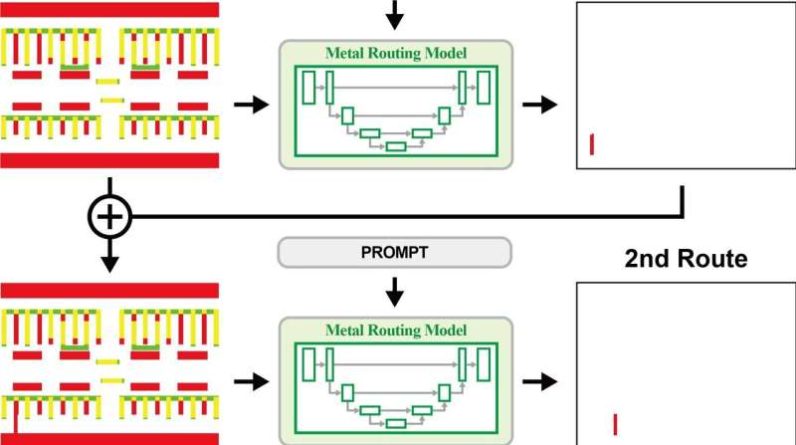By Amitek Sinha
In the ever-changing world of marketing and advertising, the adoption of Artificial Intelligence has changed how brands across industries operate. However, a revolutionary force that has been silently emerging and bringing in a new era of potential is the role of Generative AI in the world of marketing. The introduction of generative artificial intelligence (AI) has caused an industry-wide paradigm shift, having a substantial impact on the field of marketing and is radically transforming how firms approach target markets, organize creative endeavors, and build a marketing strategy.

According to McKinsey research, 90% of corporate executives plan to integrate generative AI technologies in the coming years. With its exceptional capacity for autonomous content production, generative AI holds the key to creating personalized advertisements that build strong connections with individuals while optimizing labor-intensive content-generating procedures. According to Allied Market Research, the global generative artificial intelligence market, which was valued at $10.5 billion in 2022, is expected to grow at a CAGR of 34.1% from 2023 to 2032.
The profound influence of generative AI has not only altered, but also revolutionized the fundamental ideas of marketing and advertising. The impacts vary from highly personalized engagement techniques to the accelerated innovation caused by AI-driven content development. The marketing domain is on the verge of an exciting and transformative journey as the generative AI wave continues to redefine the environment.
Let’s delve into the myriad ways in which this ground-breaking technology can help transform marketing, resulting in a new era of creativity and engagement that can be leveraged by brands:
Helping hand to Performance marketing
The advent of generative AI has ushered in an era of hyper-personalized marketing. By utilizing vast databases and complex algorithms, businesses are now able to create tailored advertising strategies that powerfully connect with individual consumers. This level of personalization goes beyond straightforward segmentation by adjusting information based on interests, behaviors, and demographics. As a result, relationships between brands and consumers are stronger and more meaningful. This customized approach enhances client interactions while also encouraging brand loyalty, which ultimately raises conversion rates and boosts the general effectiveness of marketing activities. Additionally, according to McKinsey, organizations investing in AI are seeing revenue growth of 3 to 15% and sales ROI increases of 10 to 20%.
Transforming the world of creatives and communication:
By accelerating the processes of content creation and curation, generative AI has completely changed the landscape of online content. AI-powered technologies produce a wide range of content formats, including text, photos, and videos, with astounding efficiency. This rapid content-generating process guarantees a steady stream of interesting information across several platforms, keeping an active online presence. As a result, more than 20% of digital spending is allocated to AI-related technology, according to a report by McKinsey. AI algorithms also help with content curation by identifying the most pertinent and captivating content for particular audiences. This not only saves time for marketers but also makes sure that the material is relevant to the audience, increasing engagement and enhancing brand identification.
Enhanced Customer Engagement
Through the use of intelligent chatbots and virtual assistants, generative AI has transformed how businesses communicate with their clients. These AI-powered entities provide real-time engagement, responding to inquiries quickly, recommending items, and providing personalized support. Businesses can boost customer satisfaction and develop deeper brand-consumer ties by providing seamless and interactive experiences. Furthermore, these AI solutions collect vital data regarding client preferences and pain points, allowing businesses to improve their offers. This increased level of participation not only enhances the entire customer experience, but also provides organizations with relevant data for strategic decision-making.
Predictive Analytics
With the use of predictive analytics and generative AI, marketers can now predict customer behavior with a level of precision never before possible. Future trends and consumer behavior are predicted by AI algorithms by examining historical data and recognizing patterns. This insight enables companies to proactively transform their marketing initiatives, lining them up with new trends and preferences. The effectiveness of campaigns is maximized thanks to this strategic strategy, which also puts brands ahead of competitors. As a result, generative AI-powered predictive analytics improves decision-making processes, enabling firms to allocate resources more effectively and develop marketing activities that appeal to their target audience.
Generative AI: Shaping Tomorrow’s Marketing Landscape!
The rise of generative AI has sparked dramatic shifts in the constantly changing world of marketing, changing the way companies interact with their customers. The ability of this technology to personalize marketing fosters deep connections, and its efficient processes for content selection and development keep a vibrant online presence. Chatbots powered by AI that increase client interaction help businesses make more informed strategic decisions. Furthermore, proactive marketing strategies are strengthened by predictive analytics made possible by generative AI, and new marketing initiatives are inspired by this technology. As generative AI reshapes the fundamentals of marketing, it ushers in an era of individualized interaction, strategic vision, and creative invention, revolutionizing the field of marketing with a human touch.
The author is co-founder and COO, ETML
Follow us on Twitter, Facebook, LinkedIn





